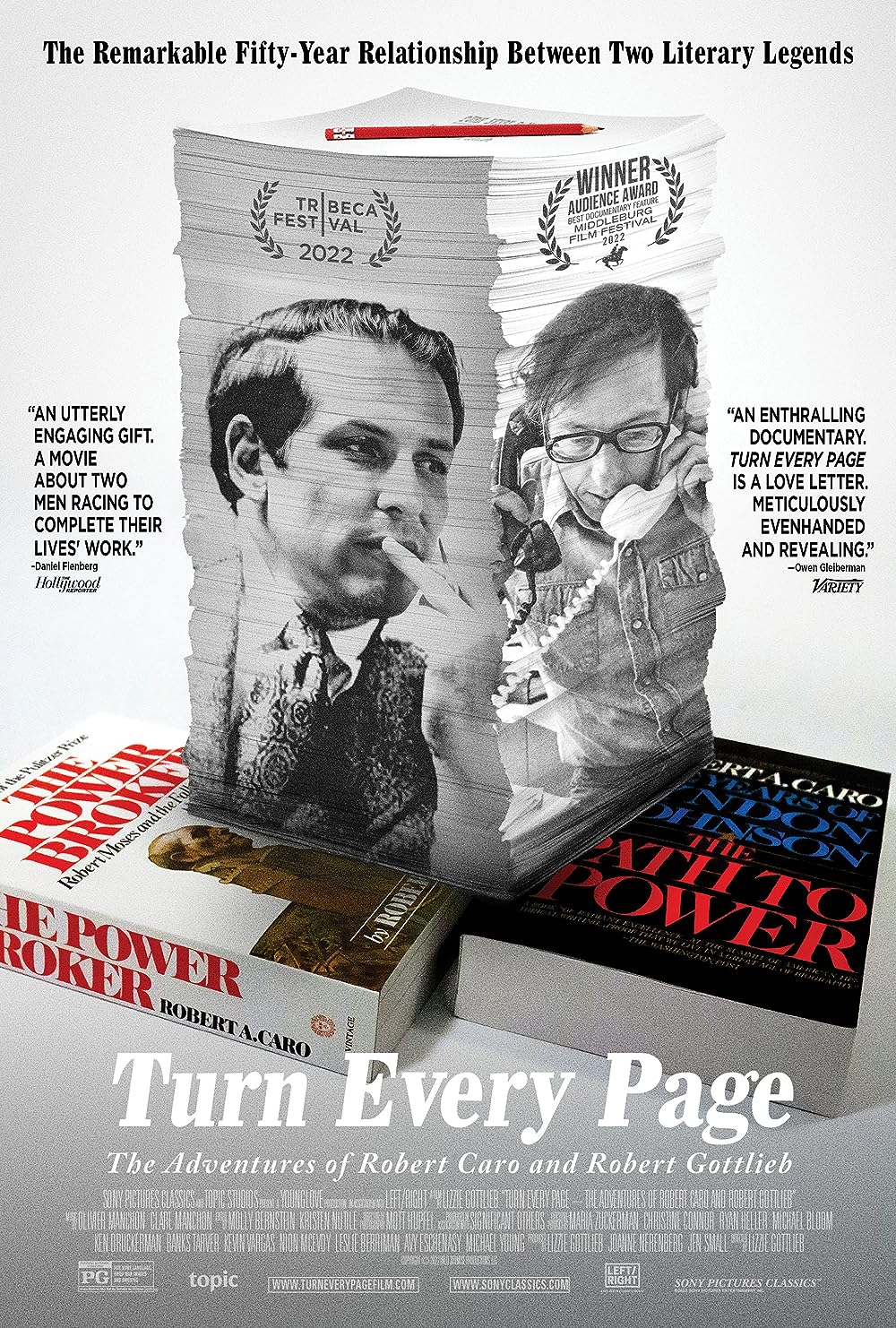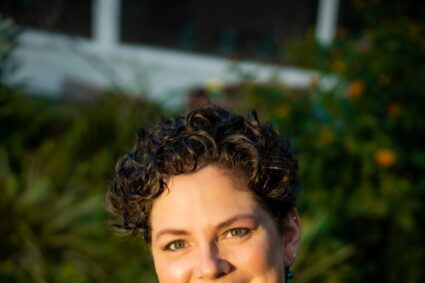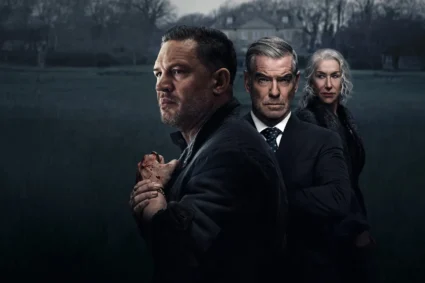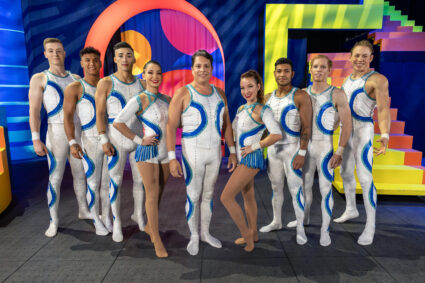
In our continuing coverage of Middleburg Film Festival, the 10th anniversary got some amazing films coming up, especially with our next director. She is the director of this amazing documentary that’s coming out on December 30th. It’s called “Turn Every Page”. And if you’re a journalist like me, you want to take a masterclass and watch this film. We have the wonderful Lizzie Gottieb!
Lizzie, welcome to THE INTERVUE!
Thank you so much. So happy to be here.
Well, I’m so happy to have you here. As I said moments ago, it felt like a masterclass watching these two wonderful Roberts, your father, Robert Gottlieb and Robert Caro, what piqued your interest to bring this story to life in the documentary?
So, I heard Robert Caro give a speech about his 50 years of working with my father. My father is an editor and publisher of many things and has been editing Caros’ work for 50 years. And if I can go back even a little more sure, because of my dad, I grew up in this house surrounded by writers, people would come to stay because other writers were like family to us. And I had never met Robert Caro until my dad’s 80th birthday. And then I heard Caro give the speech about working with my dad and actually about fighting with my father. And somebody said, “What do you fight about?” And he said, “we have very different feelings about the semicolon”.
And so here are these two guys who were both at that point in their mid80s. And they’re sort of racing against time to finish their life’s work. They both are vibrant, and vital. Caro has this major work to finish. And I just it’s sort of hit me like a lightning bolt that this was a movie I needed to make about all of these things about writing, perfection, industriousness, a dedication to craft, friendship, collaboration, mortality and legacy. That’s a lot of things. But you know, all of the things I felt were there. And that’s how I came up with it.
And you really captured in a documentary, I am very impressed, especially fights over the semicolon. I understand what I go through as an editor in chief/reporter for my own magazine. I definitely feel their pain.
You know, they take everything very seriously. How do you uncover truths about power in America, and also is a semicolon. “The right piece of punctuation in this sentence,” as my father said, those are of equal importance to both of them. So, they get very, very in it. And that struck me as very inspiring, and also hilarious. So, my hope is that one thing that shines through in this movie is how funny they are, and how much fun it is to kind of be on this journey with them.
I have to agree 100%, you capture that brilliantly. How did you get the both of them to agree? Because what for what I read, they were not pleased to be with it. But something changed their mind. What was it?
Well, they’re both quite old school, as you might have noticed, and they’re not. They’re almost allergic to publicity, or to something that might seem like they’re self-aggrandizing. You know, they’re not of the Instagram age. And so, I think at first, they both said, “Absolutely not, no, I wouldn’t do this. I’m not interested.” But I think it was, I think the idea of a film about them felt I don’t know, inappropriate in some way, because their work is more important than their image.
So, I asked my father who said, “absolutely not”. And I just kept at it and kept asking him and finally he was like, “well, you can ask about Caro, but he’ll say no.” Yeah. So, I called Bob Caro because he doesn’t email. So, I had to pick up a phone and call. And he was so lovely and gracious. And he said, “You know, I don’t really speak about my work. I just do the work.” And then he said, “but I saw another film that you made, and I really liked it. So why don’t you come and talk to me?” And slowly in that conversation, I think he came to see that I was serious. And something clicked and he agreed to do it. I think they both thought it would take me you know six months to make this film. And it has now taken me seven years. Someone told me he took all that footage from seven years and turned it into nearly two hours to make a documentary.
How do you decide what to keep? And what to explore further in his documentary after seven years of filming, and from pre-production to postproduction?
I mean, it’s a great question. I think because the film covers the subjects of Caro’s books, Caro was writing about how power works in America first, and the power broker. He’s writing about urban political power, and really revealing things that I think people did not understand about urban power until then. And then through Lyndon Johnson, he’s writing about national power. He says, “he’s not writing a biography, to tell the story of a great man, he is writing to tell the history of how power works in America through a particular life.” In this case, Johnson, who was of course in the Senate, Vice President, President, so there’s so much there.
So, one of the things that was tricky was how to figure out how to put in the film enough of the story of Robert Moses and the story of Lyndon Johnson. I want the film to be totally accessible to somebody who’s never read these books. But you also don’t want to unbalance the film by making it more about these very powerful men who shaped so much of the world we live in, and instead focus on these two guys. So, it was a balance of these kinds of for men and finding the right amount of Caro, the right amount of Bob Gottlieb and how to kind of go back and forth between them and keep everything that really centered on the relationship more than the fascinating things about them that go off in different directions.
You mentioned moments ago that you met Caro around your dad’s 80th birthday. What is one facet of Robert Caro’s life that you learned about him that surprised you?
Well, I think I didn’t really know how unbelievably charming and gracious and generous he was. He’s the most lovely, lovely man. And I think I can say that over these years, we’ve developed a friendship, which has been very, very rewarding and gratifying for me.
Well, I’m so glad to hear it. When did you realize that you wanted to become a filmmaker? Was it through your dad?
So, I was a theater director for many years. I, with two other women, founded and ran an Off-Broadway theatre company in New York and Theater Row on 42nd Street. I directed all of our plays, and I directed plays elsewhere as well. I keep this is the second lightning bolt moment I’ve mentioned in this interview, but I had this notion of a story I wanted to do. I thought, “oh, maybe it should be a fiction film, maybe it should.” And it hit I literally, it’s such a cliche, I sat up in bed one morning and thought, “oh, it should be a documentary.” I think I had some notion that because I knew how to tell a story in theater, I would know how to tell a story on film. But it took me a long time to kind of figure out how to tell that story in a documentary form. But once I did, I really loved it. I loved doing it. I loved having something that I could keep on showing people even years after I had made it instead of theater, which was gone. So it’s not one or the other, really. I just found that I loved I loved making docs.
So, was it a difficult transition to go from directing live theater to directing a short film and then your feature length film? Was that an easy transition? Or did you have some challenges along the way?
I mean, there are many challenges. So, this is my third feature doc. And my producers and I joke that we have a running list every day. It was something we learned for next time. And of course, in documentary, every film is totally different. So, it’s fun and challenging that something you learned on the last one doesn’t necessarily apply to this one because you’re writing your story as it goes along. You don’t know what’s going to happen.
I mean, I’ve learned so much I don’t even know where to begin. I think the skills of crafting a story are not dissimilar but working with actors versus sort of finding a story that’s happening in the real world.
How does it feel to have your documentary on the milestone 10th anniversary of Middleburg Film Festival.
I’m so happy to be here. I just got here about half an hour ago. So beautiful here, and everyone has been so welcoming, and lovely and supportive. So, what an incredible place to be as a filmmaker,
What would you want to say to the person who’s watching or listening or reading. If they want to become a documentarian just like you, what advice would you give them to help start their journey?
Well, I teach documentary filmmaking at the New York Film Academy. So, I do this a lot. I have a few pieces of advice. One, I would say, just start doing it. Watch a lot of films. But one thing that I found for myself and for my students is that I think most documentaries have a question they’re trying to answer. The director is trying to answer some question. And I think if you can identify what that question is, then you know, kind of what shoot and how to edit it and how to craft a story from it.
Okay, now, I just had a follow up question. What was that question for you with this documentary?
I was afraid you would ask that. It’s a really hard question, because of course, they’re like 100 questions, and I was completely cheating and not living by the rules. I told my students. But I did sort of realize at a certain point that the biggest question I was asking, or the most comprehensive question for this is, what have we gained because of these two men? And what will we lose when we lose them?
That’s a great way to end it. Lizzie, thank you so much! Check out Turn Every Page from Sony Pictures Classics – in theatres DECEMBER!


